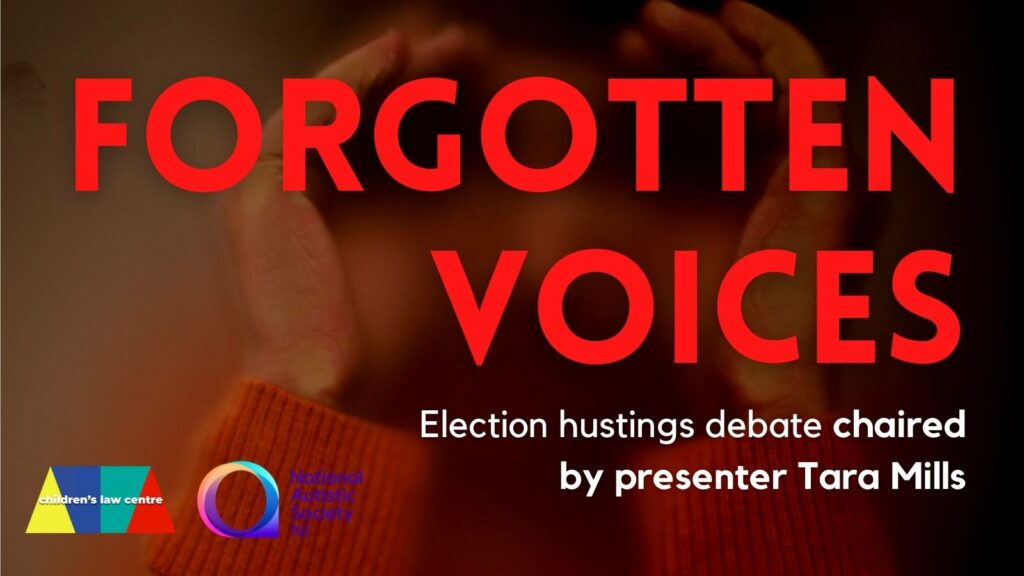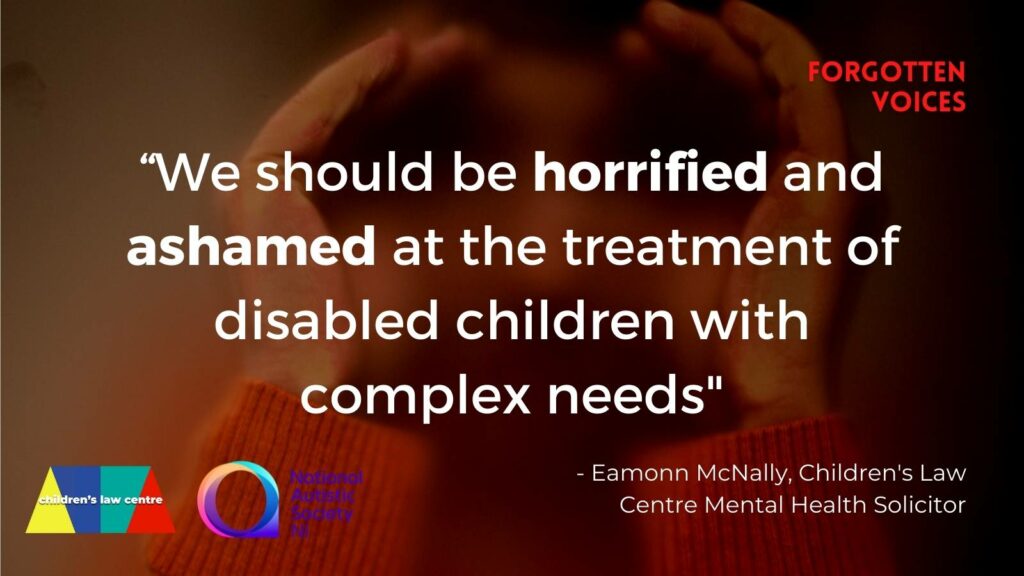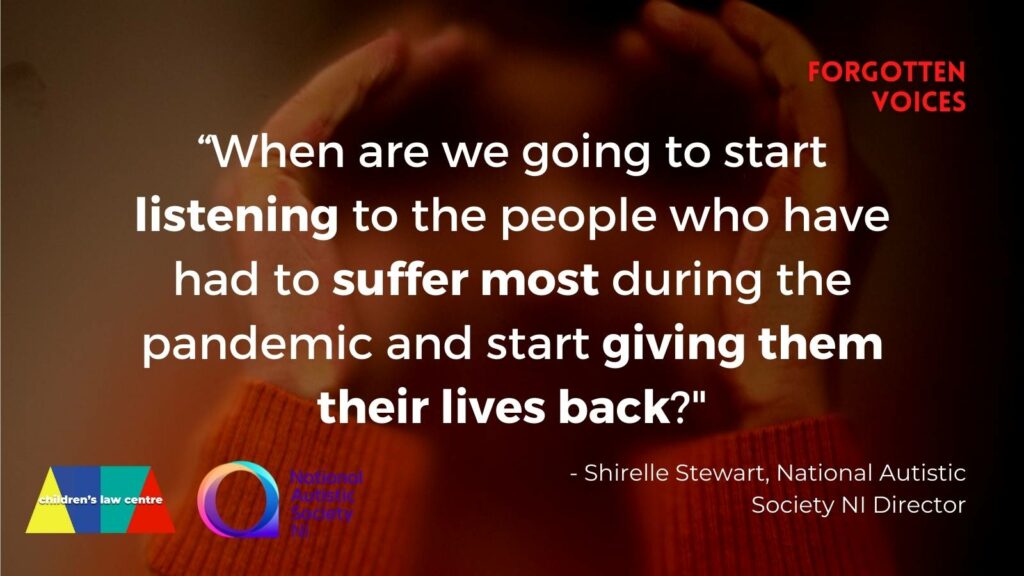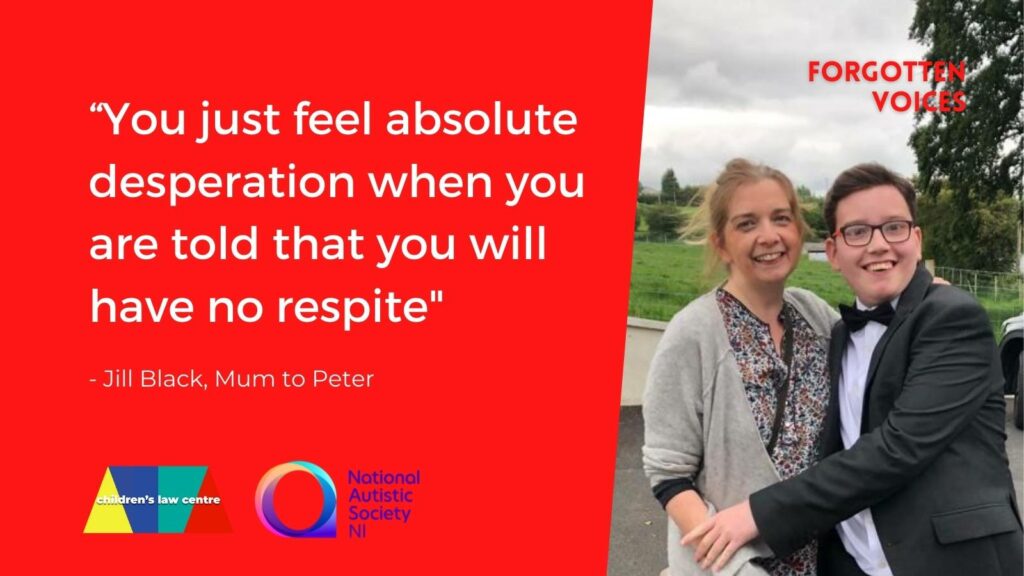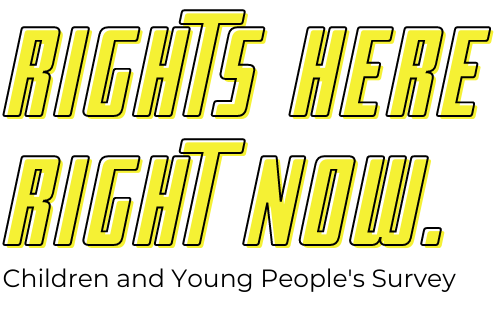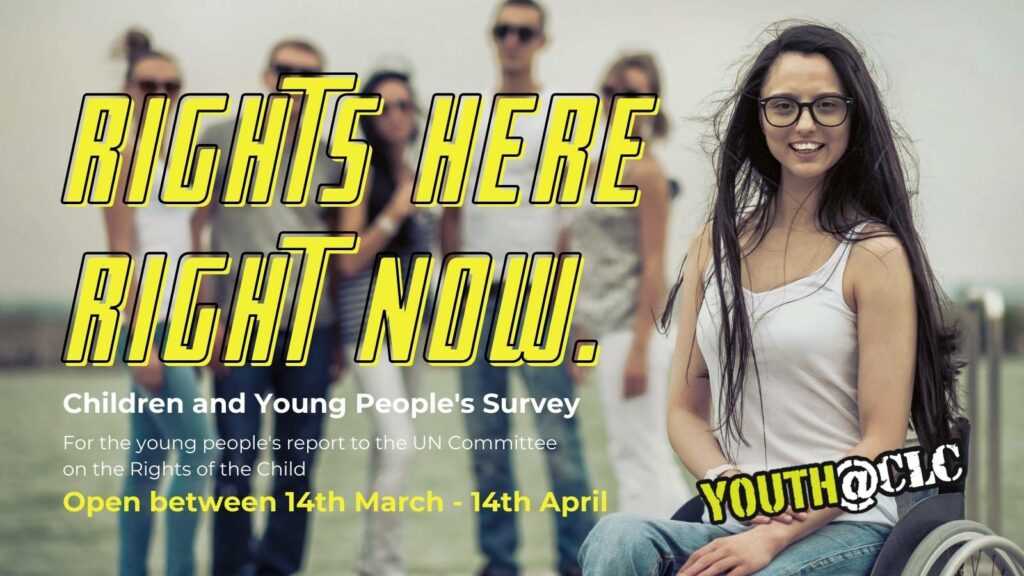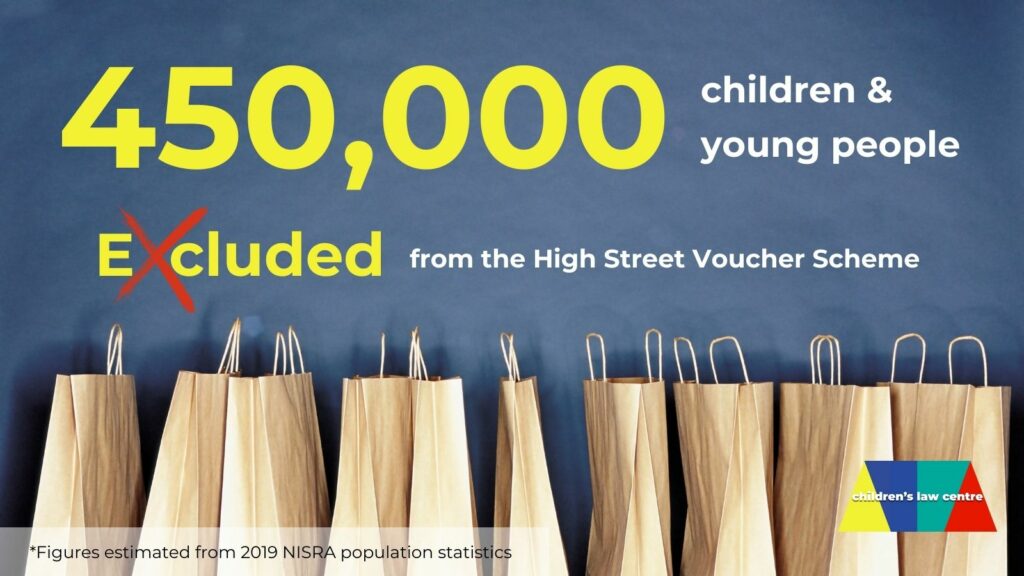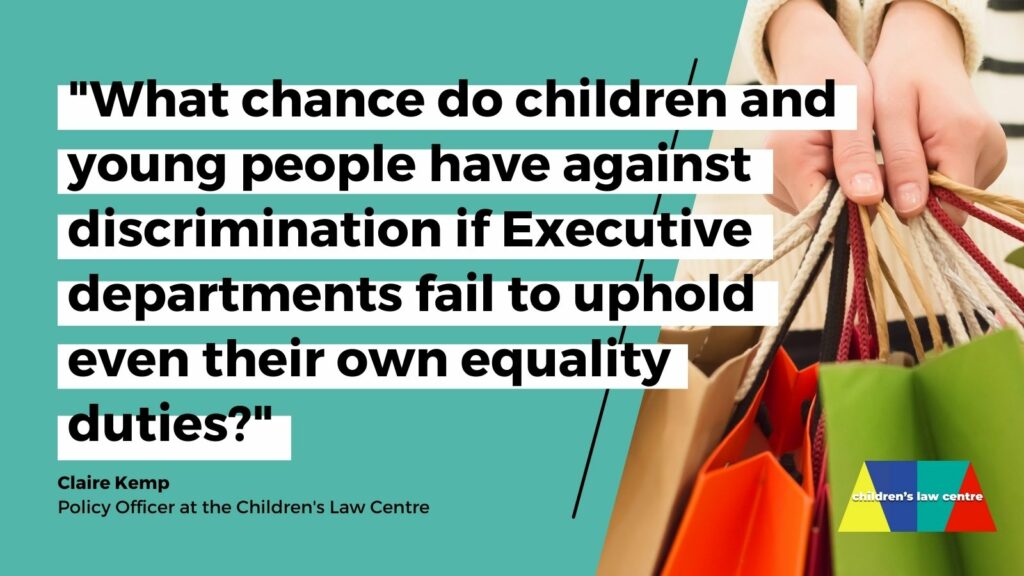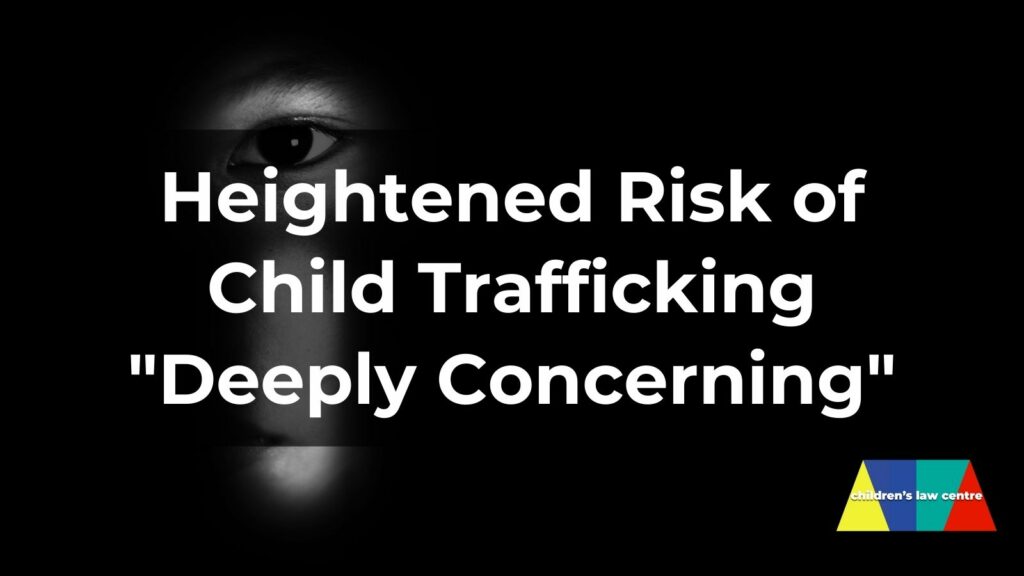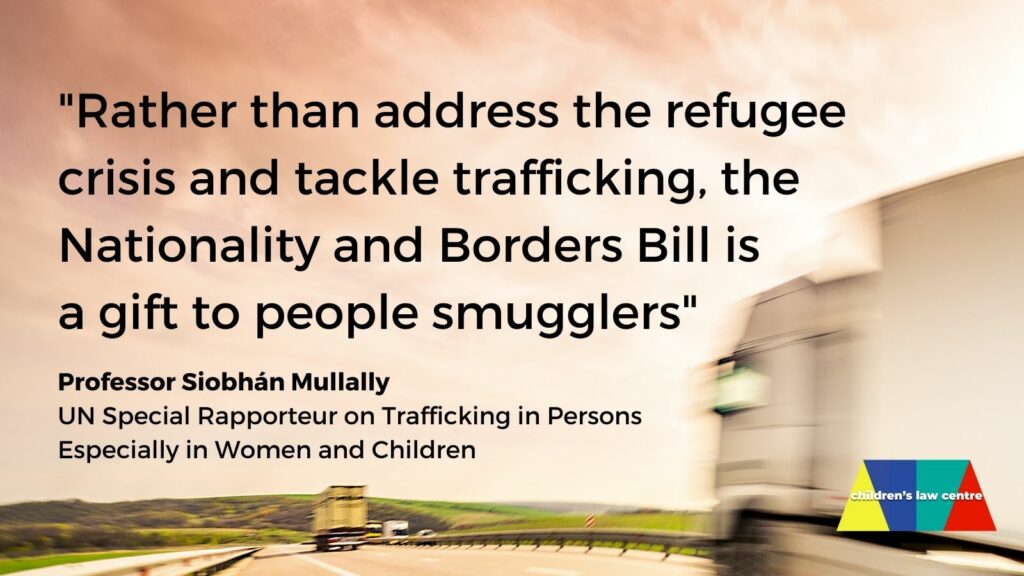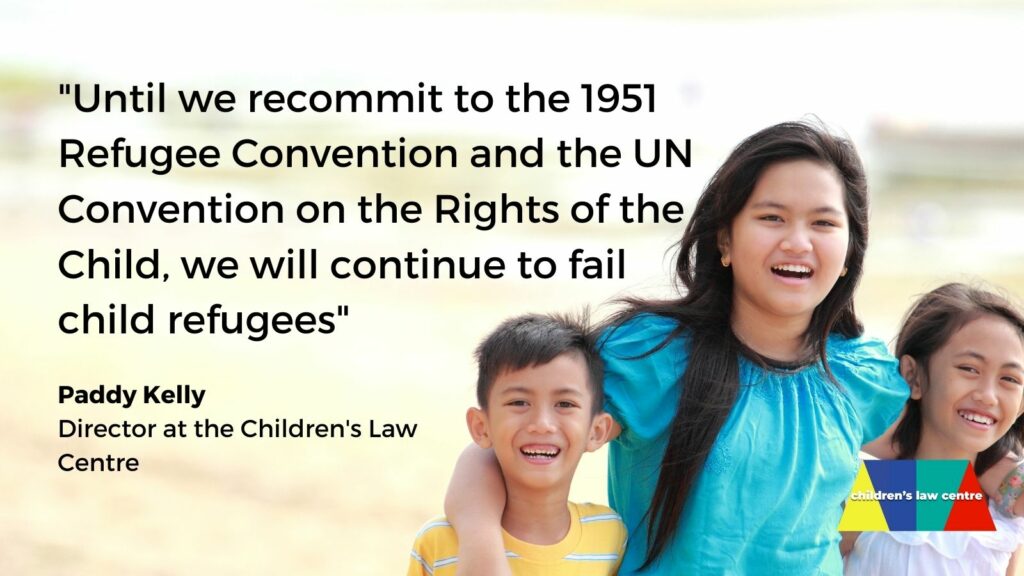25 April 2022
The Children’s Law Centre (CLC) has welcomed a report by the Department of Education reviewing the use of restrictive practices in education settings. The report makes six recommendations, including repeal of Article 4 (1)(c) of the Education (NI) Order 1998 and outlines the need for statutory guidance.
Legal experts at CLC also welcomed the recognition of children’s rights under the United Nations Convention on the Rights of the Child (UNCRC) within the report, as well as the collaborative work undertaken to consult with stakeholders. A key issue at this stage is the extent of the legislative reform required to ensure compliance with human rights standards within education settings.
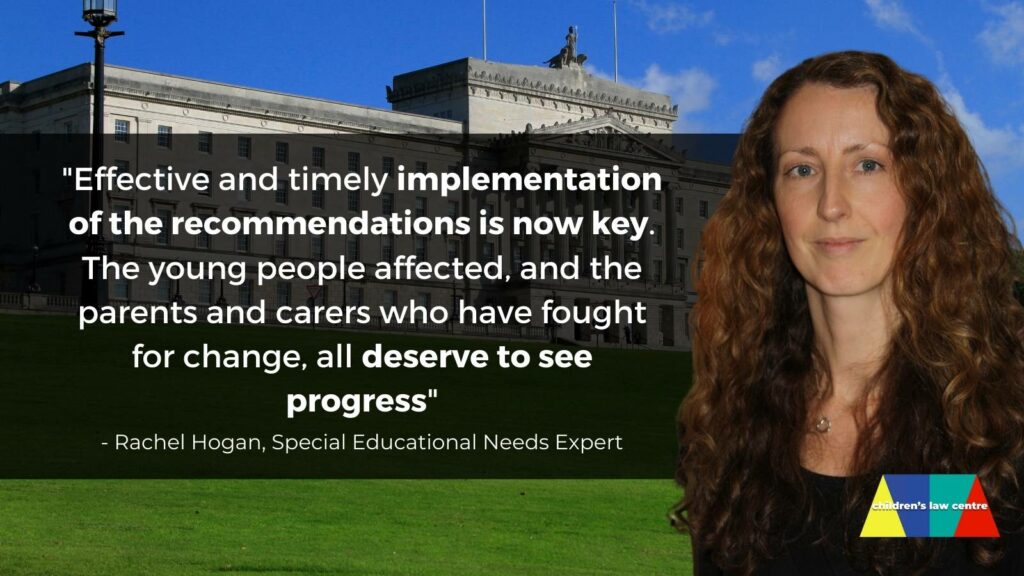
Special education needs and disability expert, Rachel Hogan, said: “I would like to pay tribute to the small group of committed individuals who have consistently built pressure to address this issue. That includes, most notably, children, young people and the parents and carers of the children and young people affected. This is what happens when the people affected have their voice heard by decision makers and should be an important lesson on how good, evidence-based, decisions can be made.
“There can be no doubt that the existing framework and guidance has led to instances where the human rights of vulnerable children have been seriously violated. The grievous impact this has had on the children affected, as well as their parents and carers, has now been brought into the public domain and acknowledged.
“There has been a notable lack of consistency in approach between education and health and social care settings and this must be fully addressed. Children should have equal protection from the unlawful and disproportionate use of restrictive practices regardless of the setting they find themselves in.
“The recommendations in the report reflect the direction of travel we need to take to protect children in education settings. This includes the urgent need for legislative reform, clear statutory guidance and monitoring practices. CLC is pleased to have had the opportunity to feed in to the report through the Department of Education’s reference group and the NI Commissioner for Children and Young People’s advisory group.
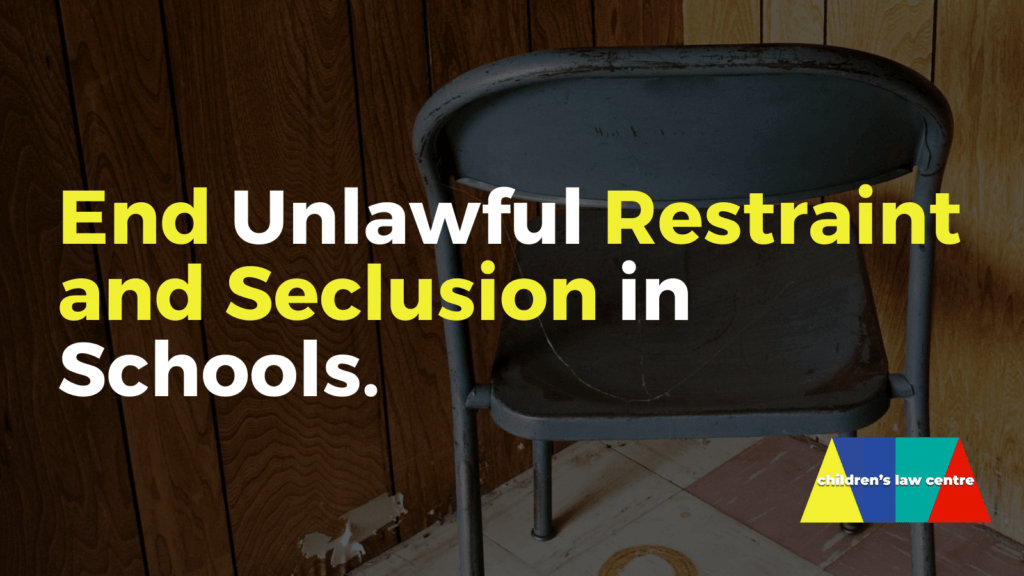
“Effective and timely implementation of the recommendations is now key. The young people affected, and the parents and carers who have fought for change, all deserve to see progress. We cannot continue to allow children’s rights to be breached in this way. The current framework has fallen well short of international human rights standards and this is the first step towards addressing that.
“CLC looks forward to ongoing engagement on the implementation of positive change to realise and protect the legal rights of children and young people in education settings.”


